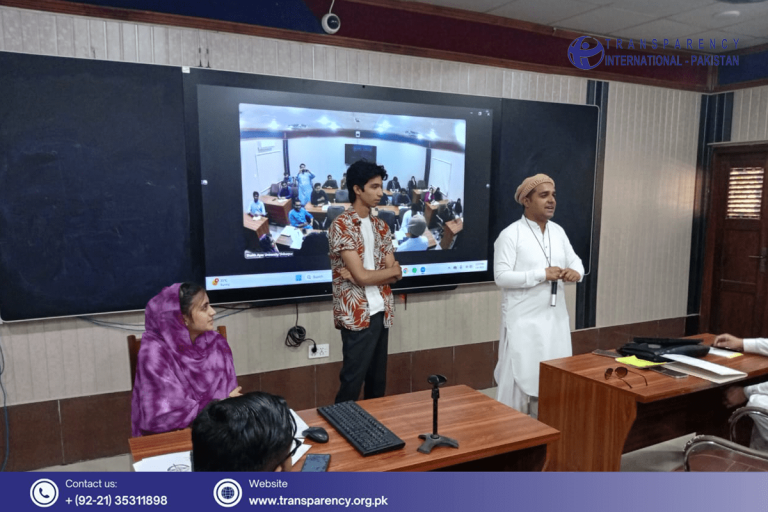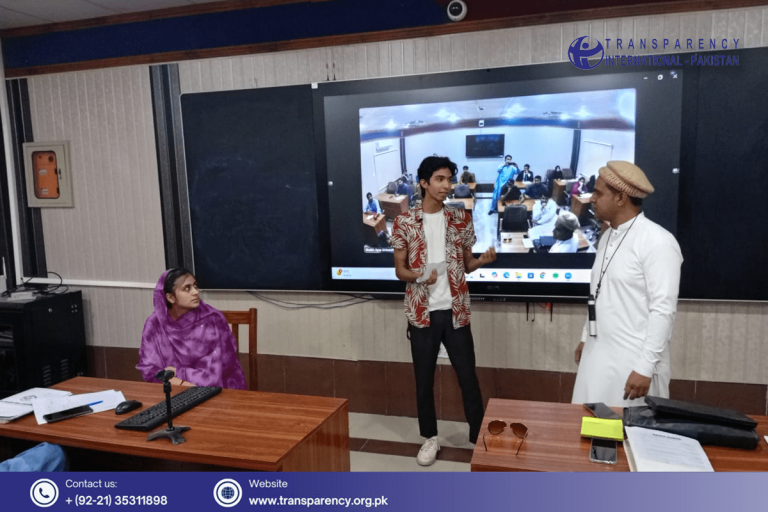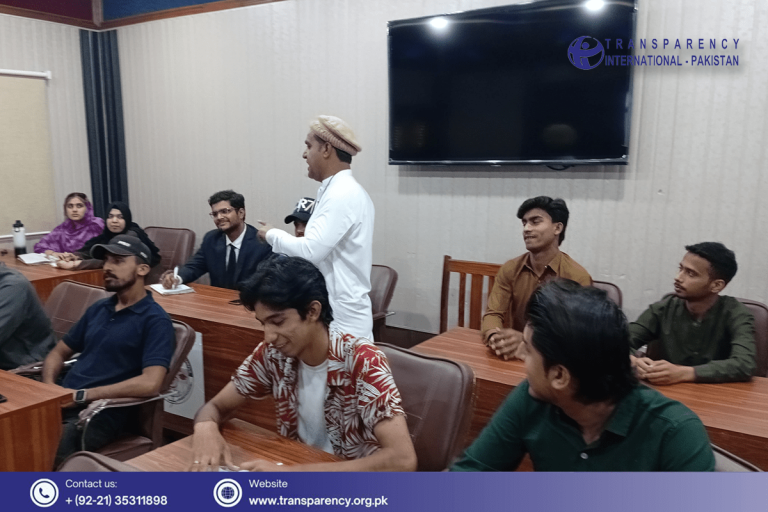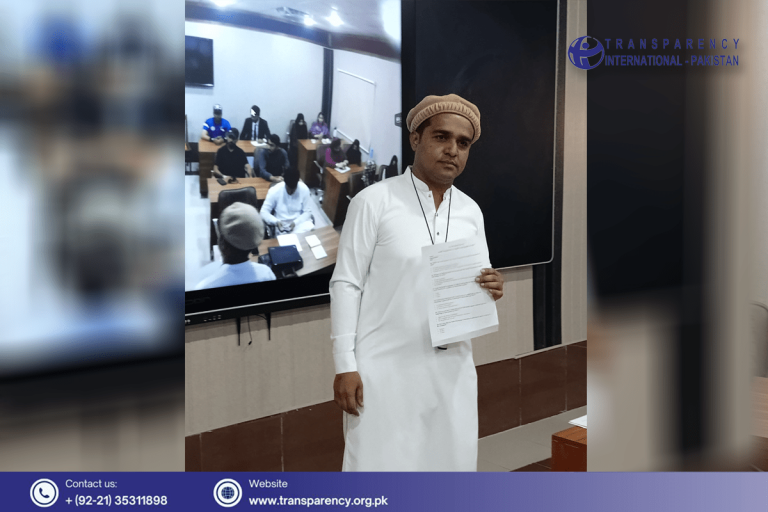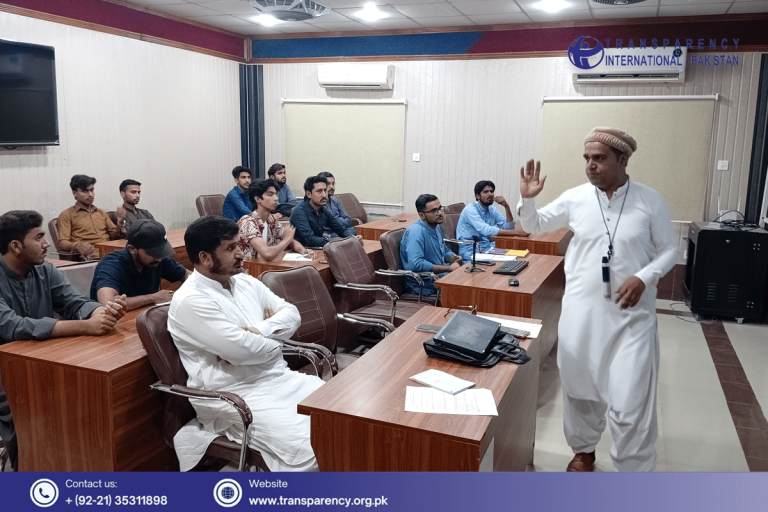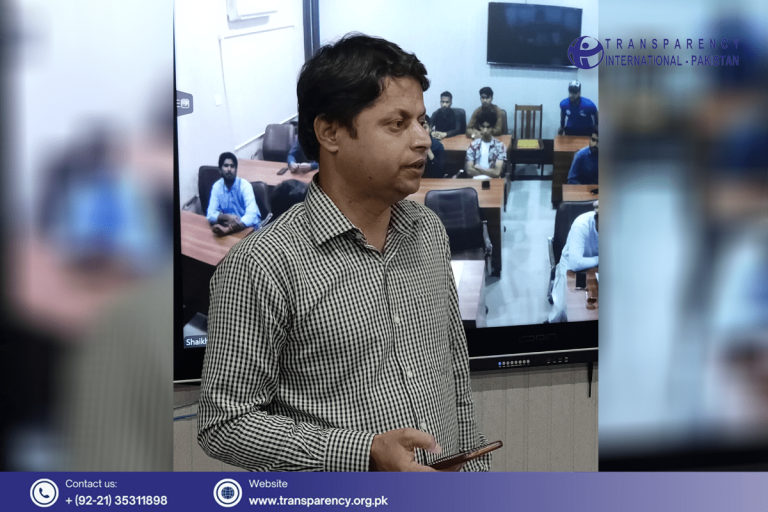Monthly Session of Youth Climate Education & Fellowship Program 2024 Empowering Youth: Social Accountability and the Right to Information
Monthly Session of Youth Climate Education & Fellowship Program 2024
Empowering Youth: Social Accountability and the Right to Information
Venue: Shaikh Ayaz University Shikarpur
Date: Tuesday, May 06, 2025
Transparency International Pakistan in collaboration with Shaikh Ayaz University Shikarpur, held a monthly session of youth fellows of Youth Climate Education and Fellowship Programme, titled, “Empowering Youth: Social Accountability and the Right to Information”. The session was attended by fellows, faculty and RTI experts.
Mr. Bakhtiar Ahmed spoke on “Introduction to Social Accountability and the Importance of Citizen Engagement in Governance” with a focus on climate change. He emphasized that in the face of Pakistan’s growing vulnerability to climate-related challenges, citizen engagement is more critical than ever. He noted that social accountability tools can play a key role in ensuring that climate funds are used effectively, that environmental policies are implemented transparently, and that local communities have a voice in adaptation and resilience planning.
The technical session on Right to Information was led by Mr. Ravi Kumar, RTI Expert and Trainer. He delivered an in-depth presentation on understanding of the Right to Information (RTI). He provided an overview of Sindh Transparency & Right to Information Act 2016, and highlighted the significance, functions and responsibilities of the Commission.
Mr. Kumar discussed the fundamental concepts of the Act and covered key topics including the definition of applicants and public bodies, the role of the Information Commission, and the categories of information that are accessible or exempted under the Sindh RTI Act 2016. He outlined three essential steps in filing an RTI request, a) determining the specific information required, b) identifying the relevant department or public body, and c) submitting the application to the Designated Official of that public body.
Mr. Kumar also discussed the penalties applicable to departments that fail to comply with RTI requests. He informed participants that, under Clause 6(1) of the Sindh RTI Act, public bodies are obligated to proactively disclose information to ensure public access. If such information is not readily available, an RTI application serves as a vital tool of social accountability, promoting transparency and responsible governance.
He emphasized that the RTI law is especially important in the context of climate action. Access to timely and accurate environmental information, such as data on emissions, deforestation, disaster response, and climate financing, enables citizens and civil society to monitor environmental policies, track government commitments, and hold relevant agencies accountable. Mr. Kumar noted that transparency and openness is key to building public trust and ensuring that climate-related initiatives are effectively implemented, equitably funded, and aligned with the needs of vulnerable communities.
During the session, the fellows took part in a Pre-Workshop Knowledge Assessment to evaluate their baseline understanding of the Right to Information (RTI). A Post-Workshop Knowledge Assessment was conducted after the session to measure the knowledge gained on the Sindh RTI Act and its role in promoting transparency and climate accountability.

